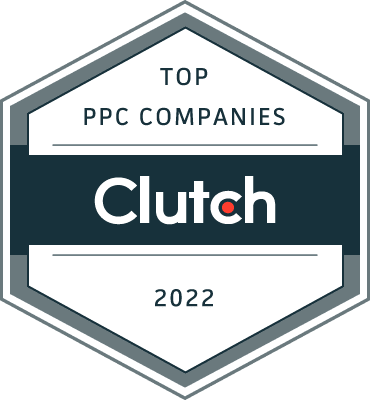May 10, 2023 Joshua Ruskin
How to Answer Client Objections with PPC Services
Categories:
Tags:
As a provider of PPC services, it’s essential to understand and address the concerns and objections that clients may have. Let’s discuss how to answer client objections with PPC services and explore some typical scenarios you might encounter. We’ll provide you with the knowledge and confidence to handle these objections and ensure that your clients understand the value and benefits of PPC advertising.
Why Pay Google and You? Unraveling the Double Cost Dilemma
Objection 1: Why pay Google and You?
Objection
A client questions the need to pay both Google for the ad spend and your agency for PPC management services.
Analyze the Objection
The client might need to help understand your agency’s value in terms of expertise and experience in managing PPC campaigns. They might be under the impression that they can do it themselves without professional assistance.
How to Handle
Explain the benefits of using a professional agency to manage PPC campaigns by:
- emphasizing your knowledge of the platform,
- ability to optimize campaigns for better ROI,
- and the time savings they’ll experience by outsourcing this task.
- Clarify that Google charges for ad spending while your fee is for management services.
Many clients wonder why they need to pay both Google and your agency for PPC services. Clarifying the roles and responsibilities involved in a successful PPC campaign is crucial.
The Role of Google in PPC Advertising
Google provides the platform and tools necessary to create and manage PPC campaigns. When clients pay Google, they’re essentially paying for the advertising space and ensuring their ads are displayed to their target audience. Google’s advanced algorithms help target the right users based on keywords, location, and other factors, making it a powerful marketing channel.
The Role of Your Agency in PPC Management
Your agency, on the other hand, handles the strategic and tactical aspects of the campaign. This includes keyword research, ad copy creation, campaign setup, optimization, and reporting. By paying your agency, clients are investing in the expertise and experience needed to maximize the effectiveness of their PPC campaigns, ultimately leading to a higher return on investment.
Debunking Alternative Payment Models and Their Viability
Some clients may suggest alternative payment models, such as paying per lead or based on performance. While these models may sound appealing, addressing why they may not suit your agency is essential.
Objection 2: Why Can I Not Pay You Per Lead?
Objection
The client wants to pay you based on the number of leads generated rather than a fixed fee.
Analyze the Objection
The client might be concerned about getting a return on their investment and wants to ensure they’re only paying for results.
How to Handle:
- Explain the importance of having a predictable revenue model for your agency and the challenges associated with variable compensation.
- Offer to set up performance-based bonuses or incentives tied to lead generation goals to align both parties interests.
Paying per lead is a fair and straightforward approach. Still, it must account for the time, effort, and resources needed to effectively optimize and manage a PPC campaign. It also needs to consider factors beyond your agency’s control, such as market fluctuations or changes in consumer behavior. Your agency can remain profitable while providing excellent client service by charging a management fee.
Objection 3: Will Only Pay You, but Only if You Hit This KPI Goal
Objection
The client only wants to pay you if specific KPI goals are achieved.
Analyze the Objection
The client may have concerns about your agency’s ability to deliver results and wants reassurance that they’ll see a return on their investment.
How to Handle
- Discuss the KPIs in question, and determine whether they are realistic and achievable. Consider negotiating a performance-based bonus structure to reach those KPIs if they are.
- If not, explain why the KPIs might be unrealistic and suggest alternative, more attainable goals.
Objection 4: Will we pay you only after the results are achieved?
Objection
The client wants to pay you only after seeing the results from the PPC campaign.
Analyze the Objection
The client might only invest in your services if proof that your strategies will work.
How to Handle
- Provide case studies, testimonials, or data to demonstrate your past success with PPC campaigns.
- Discuss the importance of investing in your services upfront for proper campaign management and optimization, ultimately leading to better results.
Performance-based payment models can be problematic for several reasons. First, they may create misaligned incentives, where the agency focuses on short-term gains rather than long-term success. Second, this model places all the risk on the agency, disregarding factors like market conditions or the quality of the client’s product or service. Ultimately, a stable management fee ensures that your agency can provide the best possible service and help clients achieve their goals over time.
Addressing Billing and Payment Concerns
Clients may raise concerns about billing and payment terms. It’s essential to be transparent and explain why your agency’s policies are in place.
Objection 5: Can Billing be in the Rear vs. Up Front?
Objection
The client wants to pay for your services after the completed campaign rather than upfront.
Analyze the Objection
The client might be experiencing cash flow issues or hesitant to invest in your services without seeing results first.
How to Handle
- Offer to split the payment into smaller installments or provide a payment plan to ease the client’s cash flow concerns.
- Explain the importance of receiving payment upfront to ensure adequate resources and commitment to their campaign.
Billing in the rear might seem more appealing to clients, but it poses significant risks for your agency. Upfront billing ensures your agency has the funds to cover staff salaries, software subscriptions, and other expenses. It also helps protect your agency from non-payment or delayed payments, which can negatively impact cash flow and overall business operations.
Objection 6: Can I Pay You in Equity?
Objection
The client proposes paying you in equity rather than cash for your PPC management services.
Analyze the Objection
The client might be a startup with limited cash flow or looking for creative ways to conserve capital.
How to Handle
- Carefully evaluate the equity offer and assess its potential value.
- Consider whether accepting equity aligns with your agency’s goals and risk tolerance. If interested, negotiate a fair equity agreement.
- If not, politely decline and offer alternative payment options.
While some agencies might consider equity as a form of payment, it’s generally not recommended. Accepting equity as payment can complicate the relationship between your agency and the client, making it challenging to navigate conflicts or disagreements. Moreover, equity is not guaranteed to hold or increase in value, posing a risk to your agency’s financial stability. Instead, it’s best to stick to a traditional payment model that ensures your agency adequately compensates for its services.
Comparing PPC Advertising to SEO: Why Both Strategies Matter
Clients might question the need for PPC advertising when they can invest in SEO instead. Educating them on the differences between the two strategies and explaining why both are valuable for their marketing efforts is essential.
Objection 7: Why do ads with Google, why not just SEO?
Objection
The client questions the need for PPC advertising and suggests focusing solely on SEO efforts.
Analyze the Objection
The client might be concerned about the costs associated with PPC campaigns or need help understanding the benefits of using both PPC and SEO.
How to Handle
- Explain the differences between PPC and SEO and how each strategy complements the other.
- Emphasize the ability of PPC campaigns to generate immediate results. At the same time, SEO is a long-term strategy for building organic traffic.
- Highlight the targeting options and control PPC campaigns offer compared to SEO’s uncertain and unpredictable results.
- Explain how a holistic digital marketing approach, including PPC and SEO, can achieve greater overall success.
The Benefits of PPC Advertising
PPC advertising offers several advantages over SEO:
- PPC campaigns can deliver immediate results, while SEO can take months to show significant improvements in search rankings.
- PPC allows for precise targeting, enabling clients to reach specific demographics, locations, and interests.
- PPC campaigns provide detailed data on performance, making it easier to optimize and improve results over time.
The Role of SEO in a Comprehensive Marketing Strategy
While PPC advertising has benefits, SEO remains crucial to a well-rounded marketing strategy. SEO focuses on improving organic search visibility, which can lead to more sustainable and cost-effective long-term results. By investing in PPC and SEO, clients can reap the benefits of quick wins through paid advertising while building a strong organic search presence that drives consistent, high-quality website traffic.
FAQs
How are PPC services right for my business?
PPC services are suitable for businesses of all sizes and industries. Suppose you’re looking to drive immediate results, reach specific target audiences, and have the budget to invest in paid advertising. In that case, PPC services can be a powerful addition to your marketing strategy.
How do I determine the proper budget for my PPC campaign?
Determining the right budget for your PPC campaign depends on industry, competition, and overall marketing goals. Your agency can help you analyze these factors and recommend an appropriate budget based on your objectives.
How can I measure the success of my PPC campaign?
Success in PPC campaigns can be measured using metrics, including click-through rates, conversion rates, cost per acquisition, and return on ad spend. Your agency can help you set realistic goals and track these metrics to evaluate the campaign’s performance.
How do I ensure that my PPC campaign remains competitive?
Monitoring performance, conducting regular keyword research, and optimizing ad copy and targeting is essential to keep your PPC campaign competitive. Your agency can help you stay on top of these tasks and adjust to maintain a competitive edge.
Can I manage my PPC campaign, or must I hire an agency?
While managing your PPC campaign is possible, hiring an agency offers several advantages. Agencies have the experience and expertise to optimize campaigns effectively, stay up-to-date on industry trends, and make data-driven decisions to improve performance. Additionally, working with an agency can save you time and effort, allowing you to focus on other aspects of your business.



